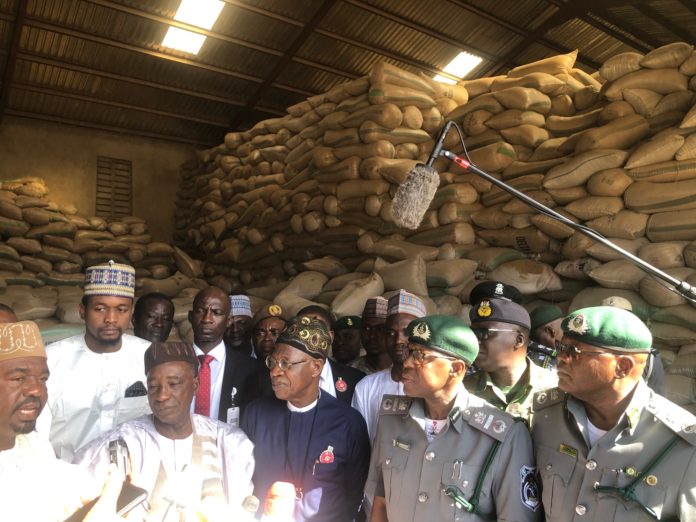The Federal Government says the country is closer to attaining self sufficiency in rice owing to the border drill that has drastically reduced smuggling and catalysed rice production across the country.
The Minister of Information and Culture, Alhaji Lai Mohammed said this on Monday in Lagos while briefing newsmen on the major achievements of the President Muhammadu Buhari’s administration for the outgoing year.
“We recently visited some of Nigeria’s 34 integrated rice mills as well as rice clusters in Kano. The rice mills are either operating at full capacity or have doubled their production.
“Before the drill, there were 12.2 million rice farmers in Nigeria, but now six million people, mostly youths, are venturing into rice production.
“Before the drill, farmers were cultivating rice twice a year, now that has increased to three times a year, and some rice farmers are now venturing beyond rice cultivation to milling, packaging and marketing.
“Overall, the integrated mills currently produce 150,000 bags of rice daily and about 35 million bags per annum,’’ he said.
The minister added that the border drill had curbed the smuggling of other prohibited items into the country, led to significant seizures with estimated monetary value of over N3.5 billion.
He said the exercise had reduced the importation of arms, ammunitions and drugs.
Mohammed said because of the drill, terrorists and other criminals are finding it hard to procure arms and ammunition while criminal elements no longer make their way into the country through the land borders.
“This has resulted in reduced cases of insecurity, whether its kidnapping, banditry, armed robbery or other violent crimes,’’ he said.
The minister said smuggling of petroleum products out of Nigeria had been drastically curtailed, and had led to a 30 per cent reduction in domestic fuel consumption.
“Before the drill, the Nigeria Customs Service was recording about N4.5 billion daily. Since the drill started, the figure has increased to between N5 billion and N8 billion daily.
“There has been a drastic reduction in illegal migration.’’
Mohammed recalled that over time, Nigeria had been confronted with numerous trans-borders economic and security challenges ranging from banditry, kidnapping, smuggling, illegal migrants and proliferation of
light weapons.
He said the preference for foreign goods, especially food items like rice, had continuously impoverished farmers and adversely affected domestic government policies supporting the agricultural sector to enhance food security.
The minister said some neighbouring countries also circumvent the ECOWAS protocol on transit.
He said the administration took the boldest step to embark on a border drill as part of measures to secure Nigeria’s land and maritime borders.
Source: NAN





